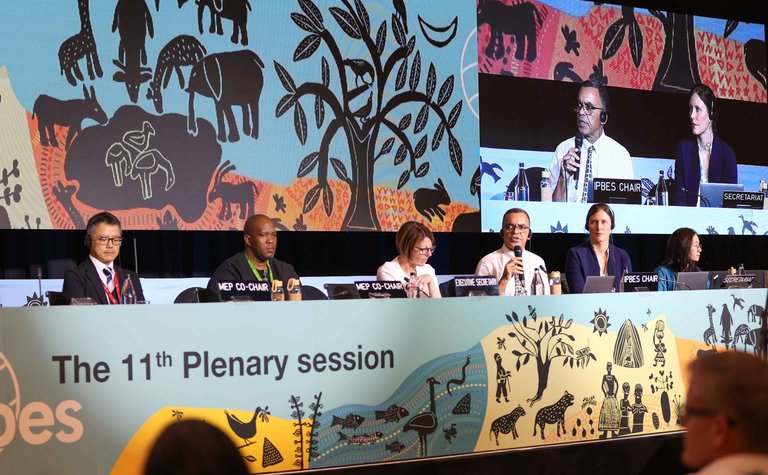IPBES warns of the need to deal with five global crises

Major global crises, both social and economic and environmental, are intimately linked and interact with each other. Therefore, trying to deal with each other in isolation is not effective and is harmful. This is the conclusion they have drawn in the latest report of the Intergovernmental Platform on Biodiversity and Ecosystem Services (IPBES).
This is the most in-depth scientific assessment in the history of these complex links, the result of three years of work by 165 scientists from 57 countries. The relationships between biodiversity, water, food, health and climate change have been analysed.
The report makes it clear that biodiversity is being reduced at all levels and regions. This continued decline is largely due to human activity, including climate change, and has direct and detrimental consequences on food safety and nutrition, water quality and availability, health and well-being, resilience to climate change and on almost all nature’s contributions to people. As you have pointed out, more than half of the world’s gross domestic product depends to a large extent on nature.
They have also noted that the measures taken to address these challenges are not effective and address the real complexity of the problem. A number of indirect socio-economic drivers have been identified that have an impact on the crisis, such as population growth, rising waste and excessive consumption, noting that almost all 12 indicators of these indirect drivers have worsened since 2001.
Another important message in the report is that the consequences of these connected crises affect more one part of the world ' s population than the other. And they have highlighted that more than half of the world's population lives in the areas most affected by declining biodiversity, water availability and quality, food security, increased health risks and the adverse effects of climate change.
Challenges and opportunities for the future
They have also analyzed the future that can be given to citizens from a number of different situations. They have seen that if current trends continue, the results will be very negative for biodiversity, water quality and health. But they've also seen opportunities for a better future. To this end, together with the conservation and restoration of ecosystems, the reduction of pollution and the mitigation of climate change, actions based on sustainable production and consumption should be undertaken.
The report shows that there are currently many possibilities for responding to the crisis and that some of them are low-cost. Thus, more than 70 alternative responses have been presented. Examples are the regeneration of carbon-rich ecosystems (forests, soils, mangroves), the management of biodiversity to reduce the risk of spreading animal diseases to humans, the improvement of integrated management of the terrestrial and marine landscape, nature-based urban solutions, healthy and sustainable diets, and support for indigenous food systems.
Buletina
Bidali zure helbide elektronikoa eta jaso asteroko buletina zure sarrera-ontzian











